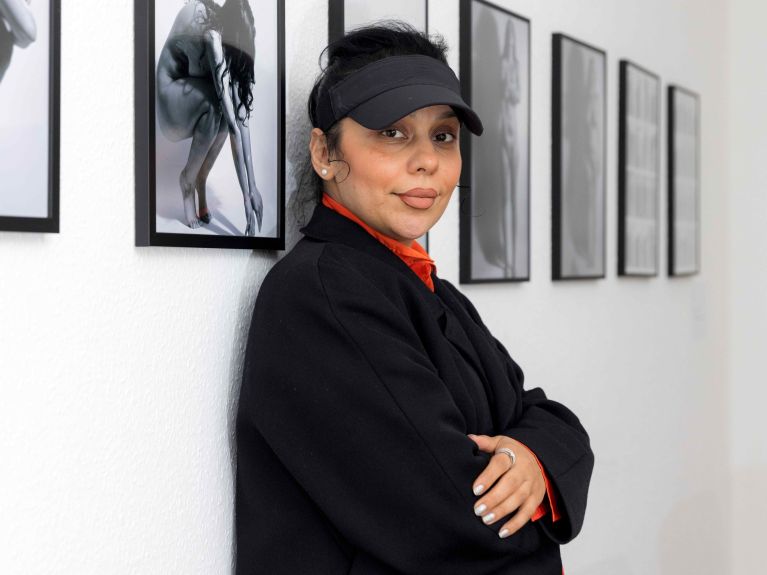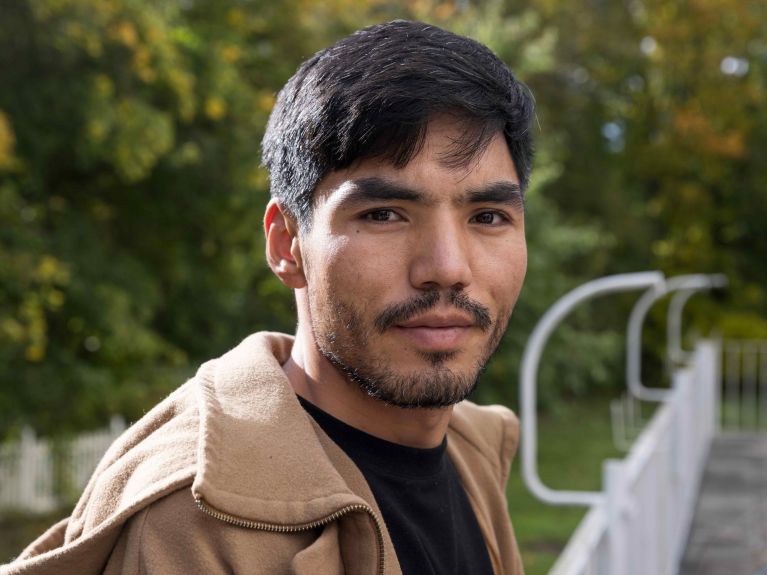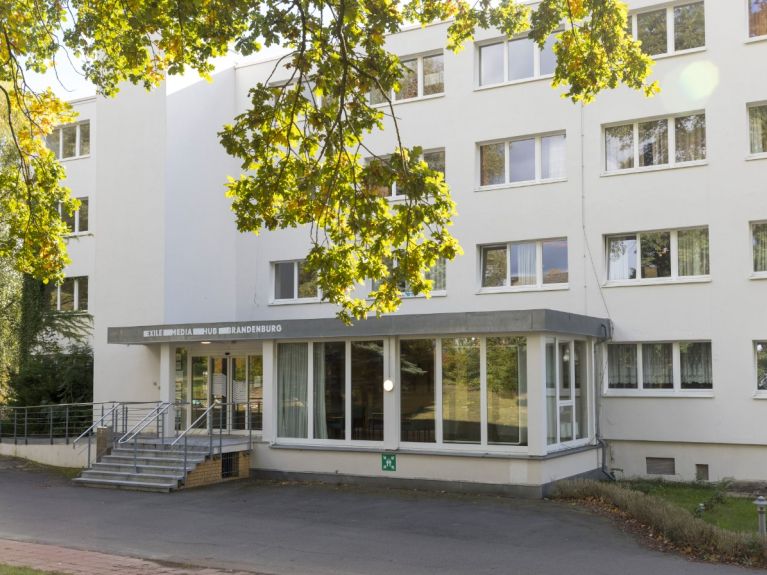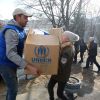A new start in Germany
The Exile Media Hub Brandenburg offers displaced media workers from around the world the opportunity to have a fresh start in their professions.

Those who click through the website of Iranian photographer and film maker Sareh Oyvesi will see many images of confident women. Most of them are shown in a fashion context with professional lighting. It is the type of portfolio you would expect from somebody such as her, who has been working in the industry for decades. However, she had no future in her home country. The Iranian regime found the way in which she portrays women too progressive. Her website was removed from the internet and her Instagram account was blocked. "That was when I knew I had to leave the country."
Oyvesi made it to Germany via Georgia and Turkey. She initially stayed in refugee accommodation in Frankfurt/Oder. The six months which she spent there were a rough time for her. "I wanted to work, to take photos, to express myself through art. But this was exactly what I was not allowed to do as a refugee undergoing the asylum procedure." One day a social worker had some great news for her: he told her about a project for young, highly qualified creative professionals such as herself that would help her find a job in Germany.

Workers for the region
Since July 2024, Oyvesi has been living in the Exile Media Hub Brandenburg, an initiative of the Media in Cooperation and Transition (MiCT) NGO that supports media professionals around the world by offering training programmes. The accommodation facility in Schmerwitz, a village with a population of around 200 about an hour and a half southwest of Berlin, was originally intended for journalists who have fled from Ukraine. "When the war started, we expected that entire editorial workforces would flee into exile. In addition to this, a cold winter had been forecast. We literally wanted to offer the Ukrainians a winter residence to do their work," explains Klaas Glenewinkel, co-founder of MiCT. However, it turned out that the majority of media professionals had no intentions to leave the country, and winter 2022 was not as harsh as expected, either. "We then made new arrangements relatively quickly and opened up the project for people from other regions and professions."
Persecuted journalists are a minority group among the currently eleven residents of the Exile Media Hub. "They are more likely to come through the protection programme of the Federal Government's Hannah Arendt Initiative in future," he explains. "This programme is specifically aimed at journalists in acute danger to life for whom we arrange humanitarian visas." Meanwhile the MiCT is cooperating closely with Brandenburg's central authority in charge of foreigners (ZABH) to bring young people from various media sectors to Schmerwitz, who suffered persecution in their home countries: podcasters, bloggers, media designers, musicians, but also programmers and computer scientists. "They should have enough experience and skills to be interesting to the region as workers," Glenewinkel explains.
Workshops with Google and Amazon
Mohammad Arif Fakorizada from Afghanistan originally fled from the Taliban to India, where he obtained bachelor's and master's degrees in computer science. Social workers in a refugee housing facility in Eisenhüttenstadt referred him to the project. Arif is a good programmer, he speaks Hindi, Urdu, Farsi and English, so he should be an ideal candidate for a Berlin-based startup with international ambitions. A few job interviews have already been lined up, and Klaas Glenewinkel is optimistic, too: "Skilled programmers like him are in high demand in Berlin's technology scene."

The media professionals are not only able to explore options in Berlin and the surrounding region from Schmerwitz, but they are also offered the opportunity to take part in further training locally. Some esteemed lecturers are involved in these training programmes. Not long ago, a staff member of Google held a two-day workshop on fake news verification. The high-tech giant Amazon will also come to Schmerwitz soon to deliver a training session on the use of AI tools in app development.
From tolerated guest to employee
The underlying idea of the Exile Media Hub is quite clear and simple: Germany needs skilled workers and many refugees match this profile. So why not identify these in the reception centres to integrate them into the labour market?
The Exile Media Hub is still in its pilot phase, and funding has been secured until the end of 2024. The Brandenburg Ministry of Economics and partners from the private sector are among its funding providers. Glenewinkel is optimistic that things will continue. "Migration is currently the most dominant topic in politics. Projects that offer pragmatic solutions, such as the Exile Media Hub, are urgently needed."


